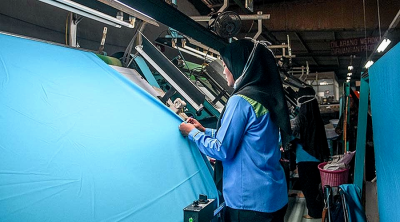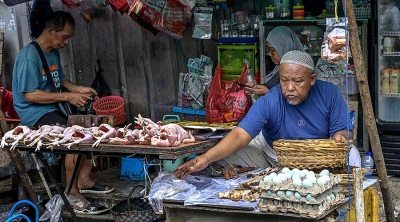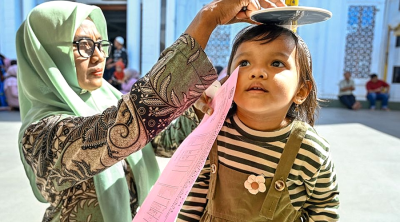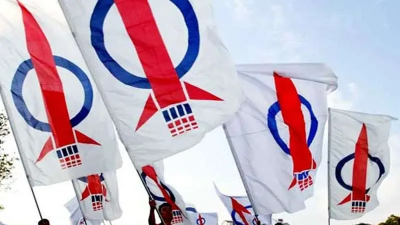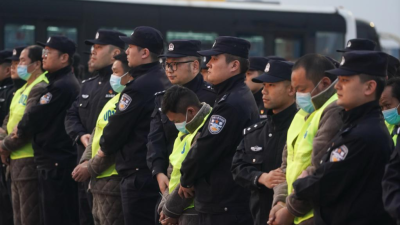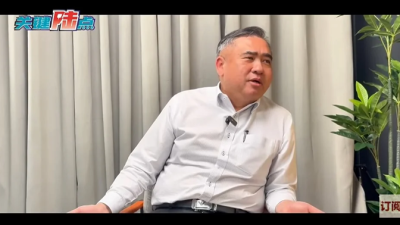The government needs to “clean up” the worker import system so as not to fatten the agencies at the expense of the poor workers.
One of the issues that drew the attention of both Prime Minister Datuk Seri Anwar Ibrahim and Indonesian President Joko Widodo during the former’s two-day official visit to Indonesia was the treatment of Indonesian workers in Malaysia.
In a press conference after the two leaders’ meeting, Anwar said the Malaysian government would strive to protect the welfare and rights of foreign workers, including maids. He said the controversial caning of migrant workers which had sparked controversies was already banned in 2020 as it was an inhuman punishment that would potentially hurt the feelings of the people in these two countries and even bilateral relationship.
It is indeed necessary for employers to treat the foreign workers (maid) well, but another equally urgent issue is the streamlining of the procedures to expedite the import of migrant workers.
Last year, employers nationwide filed applications for some 1.606 million foreign workers, but only 676,000 workers or 42.1% were approved, with a shortfall of still 930,000 workers, or about 6% of the country’s total workforce.
It is imperative that the government expedite and simplify the process of application approval so that the problem of labor crunch will not deteriorate.
Home minister Saifuddin Nasution Ismail announced on Tuesday after a special meeting on foreign worker management chaired by the PM that the government had decided to ease the conditions for hiring foreign workers, and that employers applying for foreign workers in accordance with their needs and abilities could get approved within three days provided that they make the applications in compliance with Section 60K of the Employment Act 1955.
In a joint press conference with human resources minister Sivakumar Varatharaju Naidu last Thursday, Saifuddin said the government would simplify the procedures for employers to hire foreign workers with the hope the duration from application to the entry of foreign workers could be shortened to under 30 days in near future in a bid to mitigate the severe manpower shortage in various sectors in the country.
After the foreign workers are brought into the country, it is our responsibility to accord them welfare and rights similar to Malaysian workers.
We have had a great deal of foreign worker abuse in the past, including maltreatment and sexual abuse of maids and delay in releasing their salaries, caning of foreign workers and their inhuman treatment at prisons.
We have no way to tell whether these are just isolated cases or are commonplace, but we cannot deny such things have happened.
We also cannot deny that there have been many incidents in which demonstrators protesting in front of Malaysian embassy in Jakarta during the past ten years or so.
We believe most Malaysian employers are treating their foreign workers and maids well, with only a small number of black sheep tarnishing the country’s international image.

Anwar admitted that the foreign worker issue had hurt the feelings of the Indonesian people, including their leaders. As such, he said the Malaysian government would seek a comprehensive solution to solve this problem and protect the rights and welfare of migrant workers.
Anwar also said the relevant authorities in Malaysia and Indonesia would discuss in details to make sure the application procedures for Indonesian workers would be simplified and expedited, and that the workers would not be exploited by profiteering agencies.
Where this is concerned, both the home and human resources ministries will be instructed to process the application for foreign workers through “digitized management” to reduce the dependence on agencies.
Agencies from different countries charge different rates for the export of workers to Malaysia. For instance, Bangladeshi workers are typically charged RM27,000 as commission (equivalent to approximately one a half years of their salaries), while Nepalese agencies charge RM22,000. As for Malaysian agencies, they typically charge the local employers around RM1,500.
Without paying the money, these workers will not be able to leave their country to work in Malaysia. Part of the about RM20k will go to the Malaysian agencies (but often these agencies claim they have not been paid).
Anwar was right when he said this whole thing is more than just an issue of the system, as every country has its own ways of handling this. As such, the government must “clean up” the worker import system, which is easier said than done.
However, if we do nothing about it, the workers will be the ones to be exploited, while the agencies laugh their way to the bank. Besides, such a modus operandi will also jeopardize the perception of these workers of Malaysian employers and our government.
The PM has instructed the home affairs and human resources ministries to work together to simplify the entry procedures so as to stop the agencies from making fat profits by exploiting the workers.
Unfortunately we have seen too much of leg-pulling in the past. Late last September, immigration director-general Khairul Dzaimee Daud said within six hours of the workers’ arrival at the airport, their employers must have all the documents ready and take their workers away immediately, failing which the workers will be sent back to their country on the next plane.
With the acute manpower shortage across many economic sectors and hiring workers a tall order for many employers, the immigration department’s sudden directive under the previous administration irked many local employers.
While we have a new government today, do we still have the same person at the helm of the immigration department? Looks like our home minister will have to look into this closely so as not to frustrate the people further.
The government’s duty is to help local businesses settle their problems, not to create new ones for them. And we believe our new unity government will bring new hopes to this country.
ADVERTISEMENT
ADVERTISEMENT








